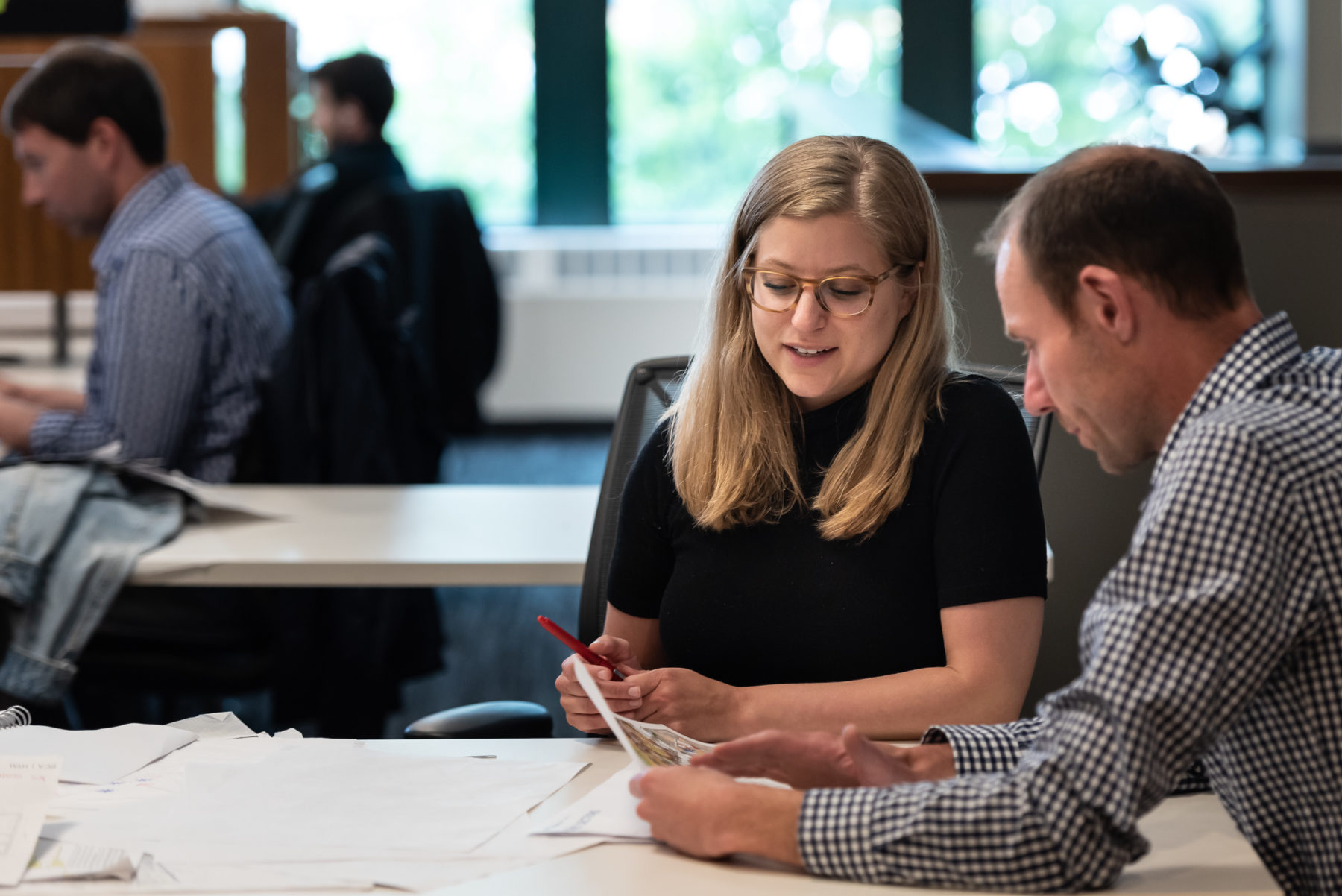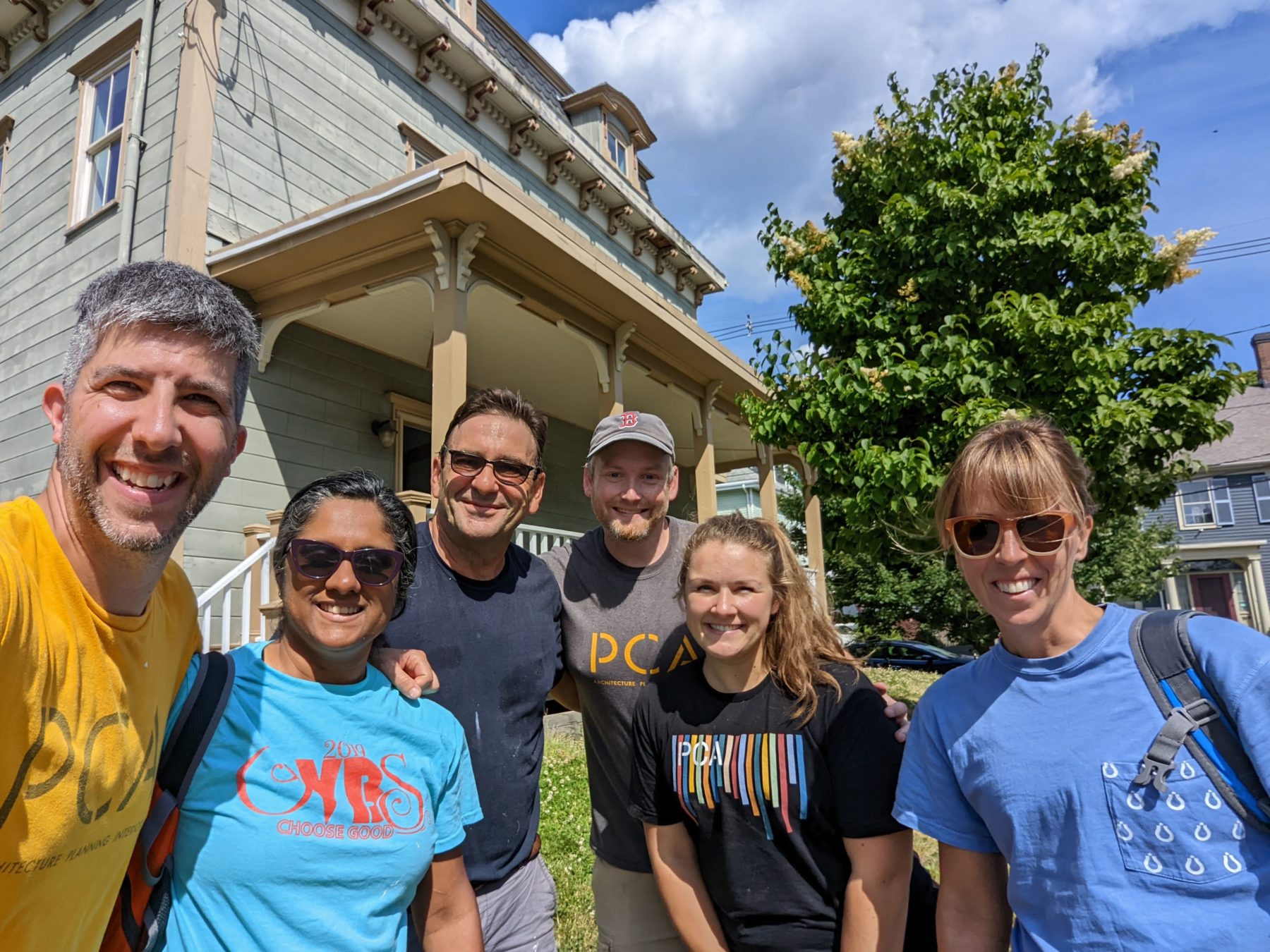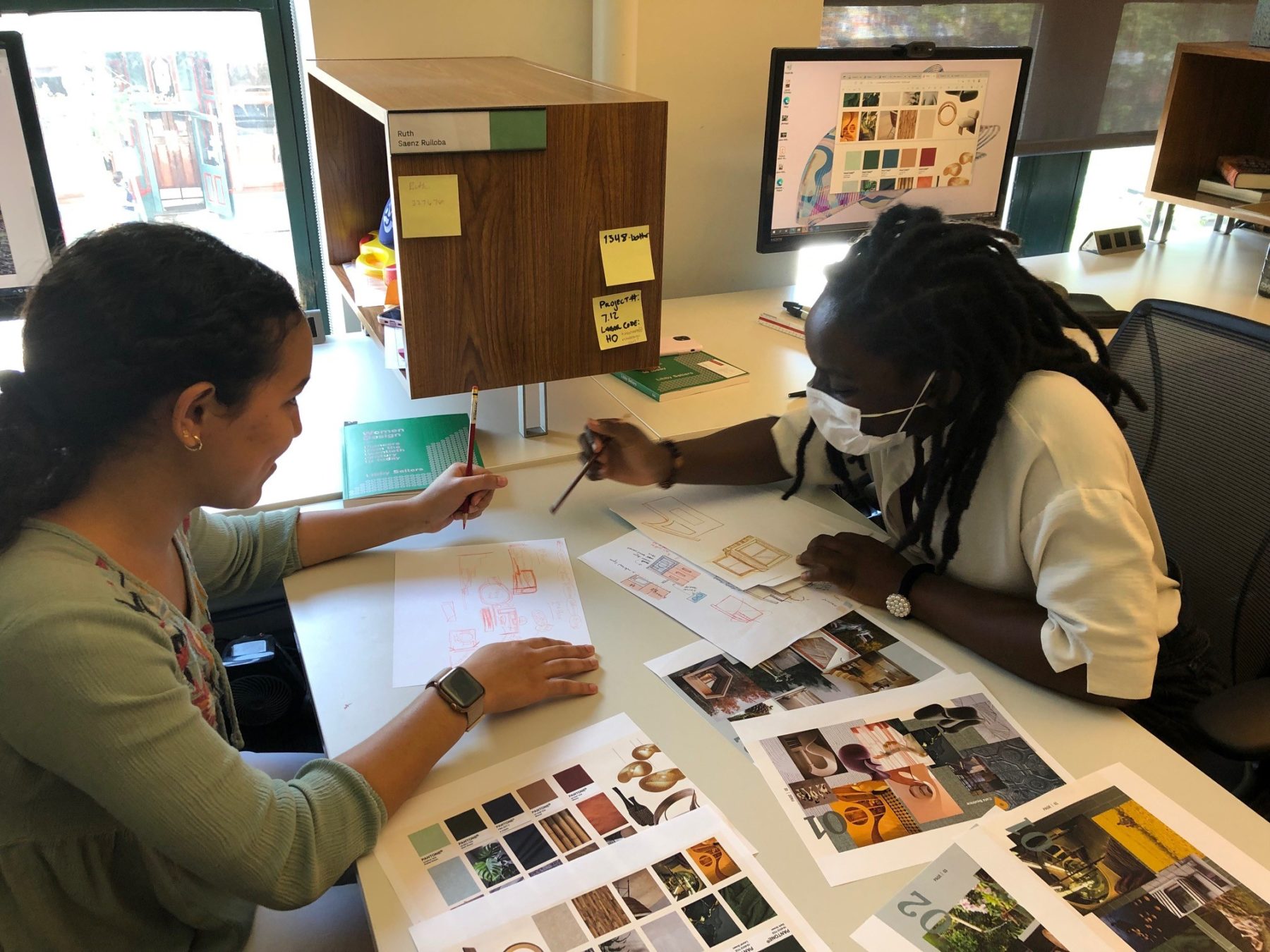Architect Nidhi John is a principal at PCA. She came to the U.S. from India to study architecture at Kent State University, where she earned both a B.A. and a M. Arch in architecture and urban design. She moved to Boston in 2004 and joined PCA a short time later. In addition to her creative work for clients over the years, Nidhi became increasingly connected to another important mission: mentoring and nurturing new employees while developing and expanding the firm’s JEDI activities.
To gain an inside perspective on this work, we talked with Nidhi about what she and her PCA colleagues do to create a learning and sharing culture – and how firmwide mentoring and community action impact the company’s employees, clients, and collaborators.
Tell us about the mentoring program and how it works at PCA. Does everybody participate in it?
Yes, everybody participates, from someone who just joined the firm to David Chilinski and the principals. The experience is impactful for both the mentee and the mentor because it truly is two-way in the learning and discussions taking place.
Our younger staff members see it as an open conversation where, for example, a mentee can raise the question about how much control they will have over what they want to do, and who is listening to them. It is a natural feeling as a mentee to wonder who is listening to you. Most young people in any workplace feel like many things are not in their control. I remember that feeling. PCA is a place where the leaders understand how important it is for young professionals to state what they want in their career and for the mentors to help make that happen. Part of that process is talking about career development and goals, including both short-term and long-term career goals.


